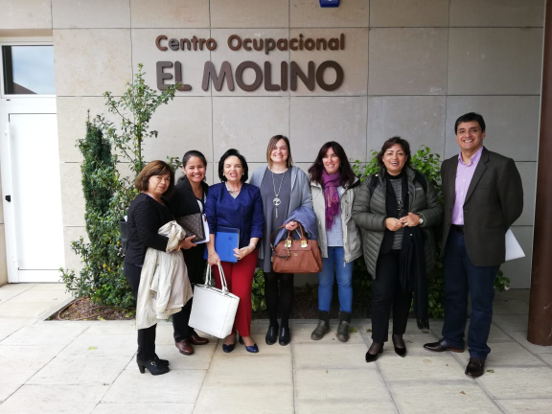EUROsociAL+ has promoted an exchange visit of the National Family Welfare Programme and the National Council for the Integration of Peruvian People with Disabilities in Spain, which has been accompanied by the social policy area in IILA.

The Ministry of Women and Vulnerable Populations of Peru has approved new care guidelines for the prevention of residential abandonment and for foster care services provided by the National Comprehensive Programme for Family Welfare (INABIF), t, aimed at children and adolescents with disabilities, who are in a situation which is or is at risk of being unprotected, with the emphasis being on person-focused intervention.
These guidelines, which have been developed with the support of the EUROsociAL+ Programme, are aimed at guaranteeing the exercise of rights, caring for the diverse needs of children and adolescents with disabilities who are users of INABIF, as well as the development of their capacities and progressive autonomy according to their interests, preferences and talents, identifying and eliminating barriers that limit them, and promoting cultural and structural changes which encourage their effective inclusion.
The technical assistance of EUROsociAL, developed by an international expert and an exchange visit in Spain (Navarre and Madrid) so as to become aware of good practices, in addition to contributing to the drafting of the regulations, have uncovered the need to incorporate the perspective of the International Convention on People with disabilities, not only in the care services, but also in budgets and in the institutional strategic plan of the INABIF.
EUROsociAL activities also witnessed the participation in all meetings of representatives from the National Council for the Integration of People with Disabilities (CONADIS) who made contact with the different INABIF teams and assumed the commitment to continue working together to solve the specific problems that the Programme has to deal with on continual basis.
During the activities of the Programme, the international expert held meetings for exchange and information gathering with: authorities; technical teams from the Special Unit for the Protection of Persons with Disabilities (USPPD) who are in charge of care services (abandonment prevention, community and home services); coordinators and staff of 6 Residential Reception Centres and the Comprehensive Community-Based Care Service that accompanies the families from the Puente Piedra area, on the outskirts of Lima. These meetings allowed for the gathering of on-the-spot knowledge regarding the care services and the guarantee of rights made available by INABIF to children and adolescents with disabilities, to their families and to the community and for the preparation of a Diagnosis of the current situation of the care services for children and adolescents with disabilities in situations of abandonment or at risk thereof offered by INABIF/USPPD, t, constituting the basis guiding the visit in Spain to see experiences relevant to the Peruvian case.



